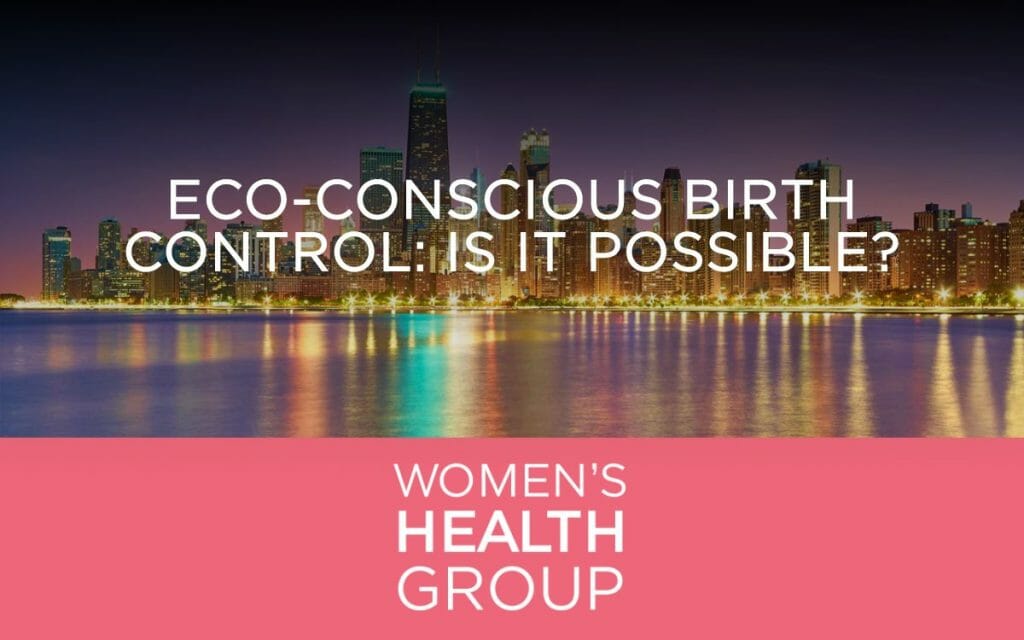Eco-Conscious Birth Control: Not Just a Concept
In the 21st Century, the term ‘eco-conscious’ is not new to our ears. It implies aware, considerate, and responsive actions towards minimizing the impact on our environment. But, how about integrating this concept into our very personal healthcare practice – birth control? You may wonder whether it is even possible to approach to family planning with an eco-friendly mindset. Here, at Women’s Health Group, our Obstetrician-gynecologists in Chicago, Illinois, have something compelling to share.
Retrieving conscious choices surrounding birth control has become more rooted in our current healthcare approaches. We present you a comprehensive overview of eco-conscious birth control methods, their potential pros and cons, how to make a decision that both respects your body and environment, concluding with a reflection on the essentiality of eco-conscious healthcare.
Exploring Eco-Conscious Birth Control Methods
When we discuss ‘Eco-Conscious Birth Control,’ we refer to methods that have minimal ecological impact and side effects to the user’s health. This branch of family planning prioritizes people’s health and the environment simultaneously. The three core contenders in this sector are Barrier Methods, Fertility Awareness Methods (FAMs), and Intra-Uterine Devices (IUDs).
Barrier Methods
Barrier methods, including condoms and diaphragms, protect against sexually transmitted infections (STIs), including HIV, and unplanned pregnancies. Choosing latex-free, nitrosamine-free condoms with biodegradable packaging reflects an eco-friendly method.
Fertility Awareness Methods (FAMs)
FAMs involve tracking your menstrual cycle to determine when you are most fertile. It’s a non-hormonal, non-invasive, and chemical-free method, making it an ecological option. Digital applications are now available for precise tracking.
Intra-Uterine Devices (IUDs)
IUDs are small T-shaped devices inserted into the uterus, either hormone-releasing or copper-based non-hormonal options. Both types have minimal packaging and waste, making it eco-conscious.
Advantages of these eco-conscious measures include minimal waste production, absence of synthetic hormones, and lowered industrial production compared to typical hormonal contraceptives such as birth control pills and patches. However, effectiveness, desired control level, medical history, and personal preference play integral parts in decision-making.
Making an Eco-Conscious Birth Control Decision
Choosing a birth control method is deeply personal as it revolves around an individual’s body, health, lifestyle, and aspirations. Predominantly, an eco-conscious birth control should complement your lifestyle, respect your body, and align with environmental commitments.
The decision could be complex, involving considering effectiveness, personal comfort, health concerns, cost, accessibility, and environmental impact. You may think whether continuous purchasing of condoms and diaphragms or using a birth control app will align with your lifestyle. Similarly, you may want to consider which IUD might work best for you. The Mayo Clinic offers insights into the choices of IUDs, which can provide detailed, health-oriented guidance.
Importance of Eco-Conscious Healthcare
Reflecting on how your choices impact the environment has become a necessity for our planet’s future. The discussion around eco-conscious birth control indicates it’s not just about contraception, but it’s an environment health issue, personal health issue and a women’s rights issue. It’s about environmentally respectful healthcare modules that are tailored to individual women’s bodies and needs.
This transition to eco-conscious healthcare could seem cumbersome initially, but ultimately, it advocates for a harmonious balance between women’s health, their decisions and the environment. By integrating lifestyle habits with eco-conscious healthcare, we aspire to pioneer healthcare revolution, which respects both the human body and the earth it inhabits.
Crafting an environmentally conscious lifestyle includes every part of it. Hence it wouldn’t be extravagant if personal healthcare choices started becoming more ecologically concerned. Choices are innately personal, and each has its ramifications for both the individual and the environment.
At Women’s Health Group, we strive to create a culture that supports, respects, and appreciates unique healthcare preferences. We invite and encourage our Obstetrician-gynecologists, other healthcare professionals, including the public, to contribute to this movement of eco-conscious healthcare.
Eco-conscious birth control might not completely replace traditional forms at once. But step by step, as we incorporate these practices, we as a society can undoubtedly move towards this paradigm shift in healthcare.
For more information regarding eco-conscious birth control and women’s health, shed light on every corner of your curiosity through Women’s Health.




